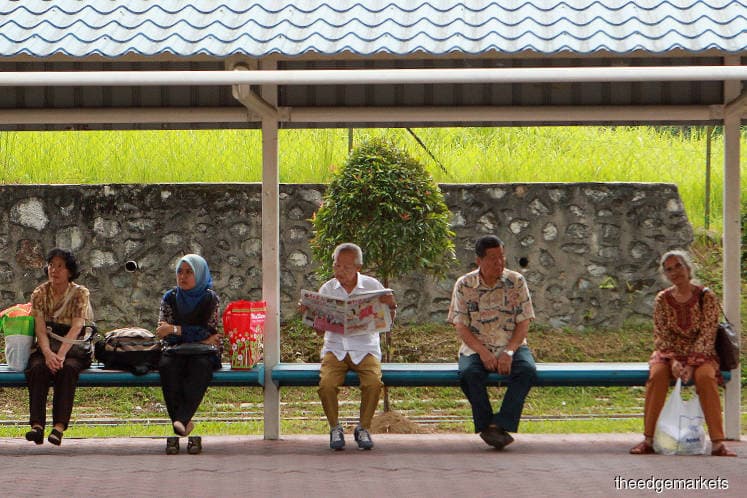
This article first appeared in The Edge Malaysia Weekly on November 6, 2017 - November 12, 2017
THE deprivation that grips people in the bottom 40% of Malaysian households presents stark evidence that the trickle-down economic logic that shapes society today is grossly flawed.
This realisation is a prerequisite for fresh insights into the challenge of ensuring equitable growth.
If we proceed to consider solutions for the dire consequences of poverty without clearing away the false presumptions about what makes economies work, it can be safely predicted that the problems of the poor will essentially remain unresolved.
Therefore, a first step towards a better society is to reorient economic thinking to put the well-being of the people at the centre of the economic system rather than as a follow-on from the wealth creation function of economic activity.
This is perhaps a millennial realisation that society needs to wake up to in the era of the 99% movement.
To rid ourselves of the delusion that such thinking is a symptom of utopian welfarism, we could keep in mind the dehumanising reality of life in the economically depressed neighbourhoods of our cities that stand cheek by jowl with the secure and comfortable precincts of the top 20% of the population.
As the development reports cited in our main story caution, the costs of rising inequality are both high and wide-ranging.
Indeed, these negative consequences have encouraged the adoption of inclusiveness as a strategy in current economic thinking globally, and the government has given due importance to this approach in the 11th Malaysia Plan and other policy instruments.
The distinction that needs to be made here is that inclusiveness as an adaptive response to an increasingly dysfunctional economic system will not cure the disease that is consuming it.
For the transformation that is needed to rejuvenate society today, this inclusiveness must rest in a change in our notion of the “Other” in terms of our self-identity. This attitudinal shift needs to occur multi-dimensionally, covering social relations, the biosphere, consumption behaviour and more.
The scale and scope of this conceptual reset may seem rather far removed from the here and now, but a little sober reflection on the precarious state of our current predicament would show that the conditions for just such a shift are not just ripe but increasingly pressing.
The prospect of economic upheaval due to global capital imbalances, the widespread disruption that is under way with the progress of the Fourth Industrial Revolution, the realignment of geopolitical forces and the unfolding climate change crisis, to name some of the major forces that are reshaping the future, all signal the need for a reassessment of first principles.
In this context, putting the spotlight on the distressing state of the underserved segment of the population, a common denominator that emerges from the litany of problems that oppress its constituents is a disconnect at multiple levels.
This manifests in a vicious circle that includes broken homes, poverty, unmanageable debt, low educational attainment, non-conducive environments, high crime rates, profiling, lack of opportunities, behavioural issues, poor self-image, low aspirations and a lack of good role models.
In particular, for young people caught in such disadvantaged circumstances, the odds of positive life outcomes may range from slim to virtually non-existent.
Rather than punitive responses, these situations call for humane interventions, exemplified by the long tradition of faith-based social services that seek to close the gap between the disadvantaged and privileged groups in society.
While these services may appeal to a sense of compassion for the disadvantaged in society, some take the view that a more emphatic response is needed to ensure that the principles of social justice are employed to address this fundamental imbalance.
Speaking to The Edge, Datuk Dr Denison Jayasooria, the principal research fellow at Universiti Kebangsaan Malaysia’s Institute of Ethnic Studies, stresses that a “right to development” approach must be adopted to promote the welfare of this vulnerable group.
He opines that a community-based development model encompassing social development principles is sorely needed to address this pressing issue.
This points to an important dimension of healthy social development that has become buried under the top-down economic development paradigm that has guided our economic growth for many decades.
It is high time that we rediscover the sense of community that used to connect all segments of the population into a united whole.
That process can start when the power to decide on an equitable allocation of resources among all groups in society is returned to the local level.
Save by subscribing to us for your print and/or digital copy.
P/S: The Edge is also available on Apple's AppStore and Androids' Google Play.